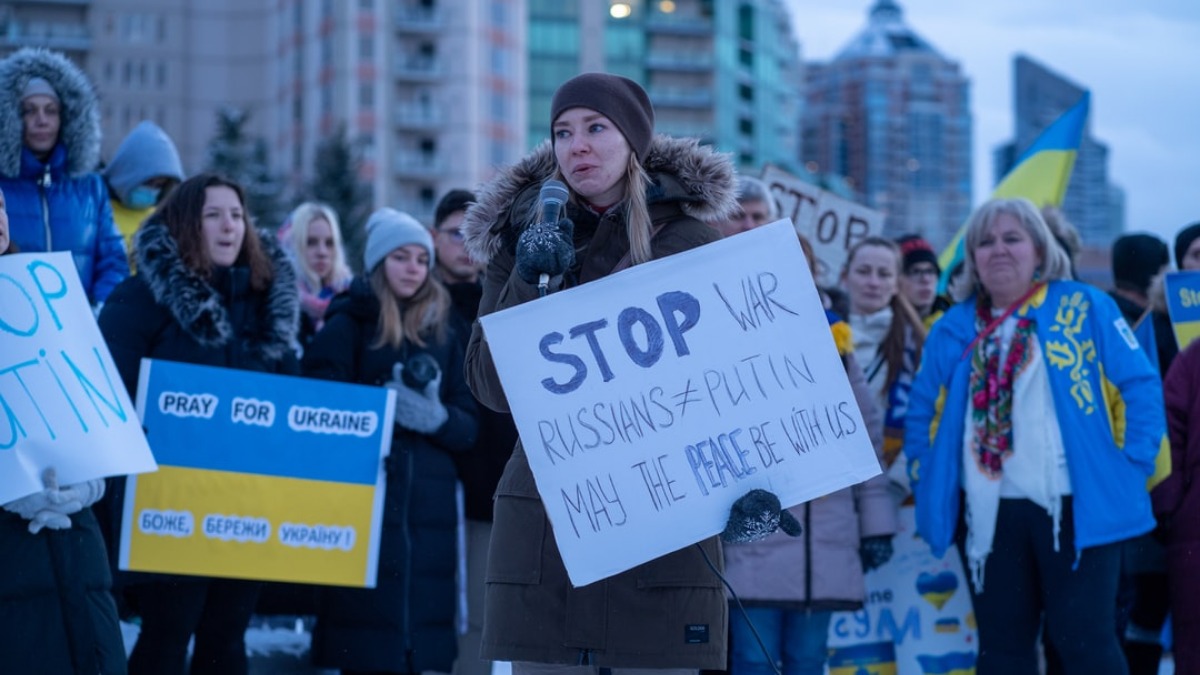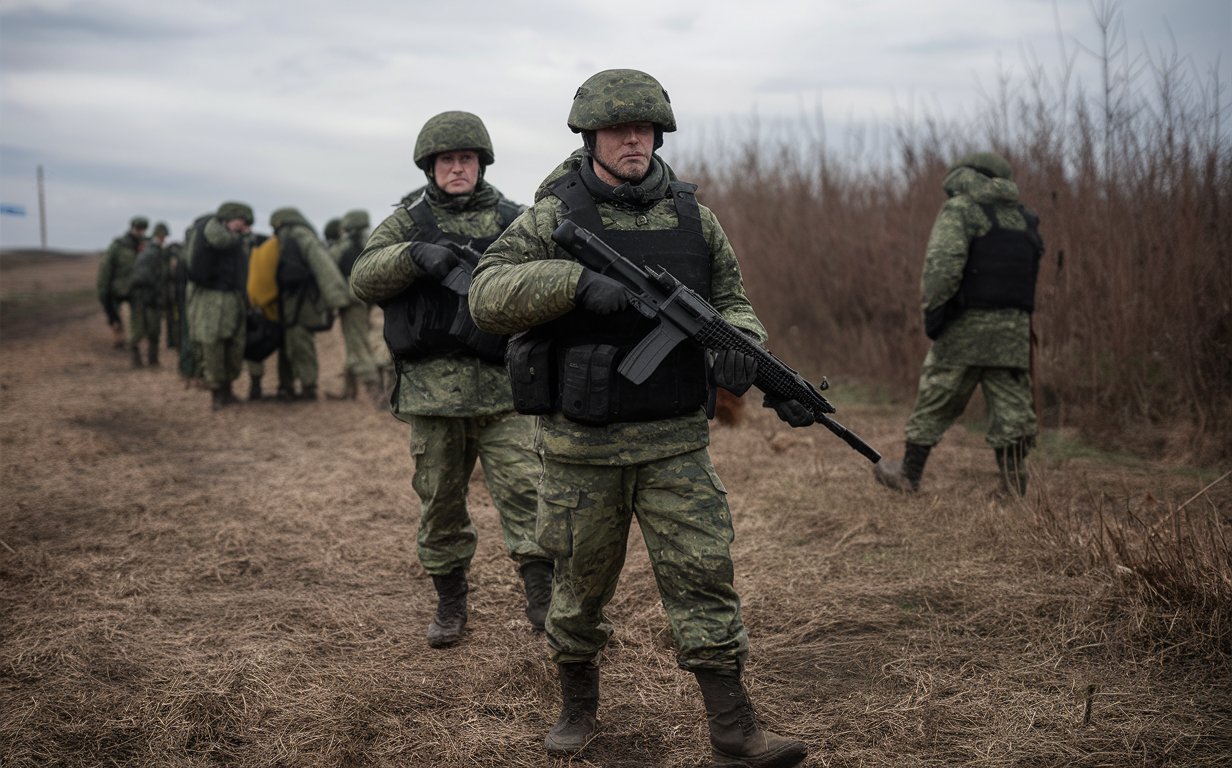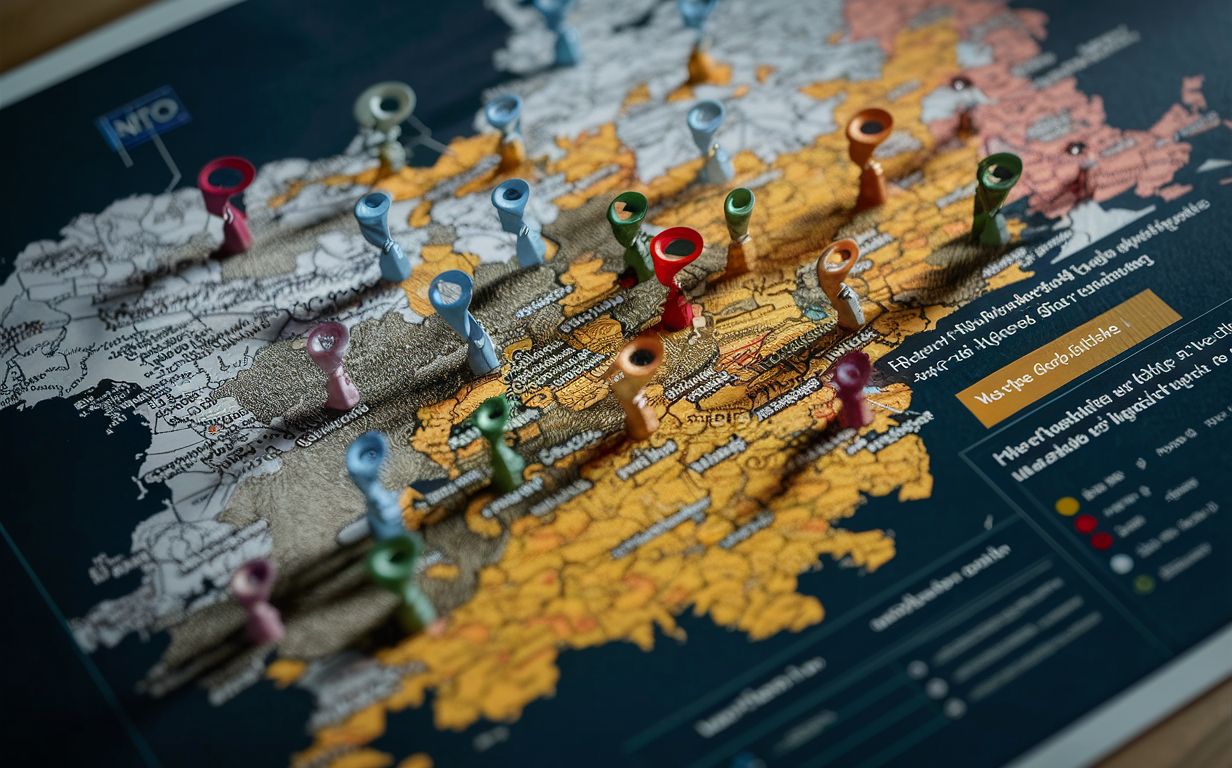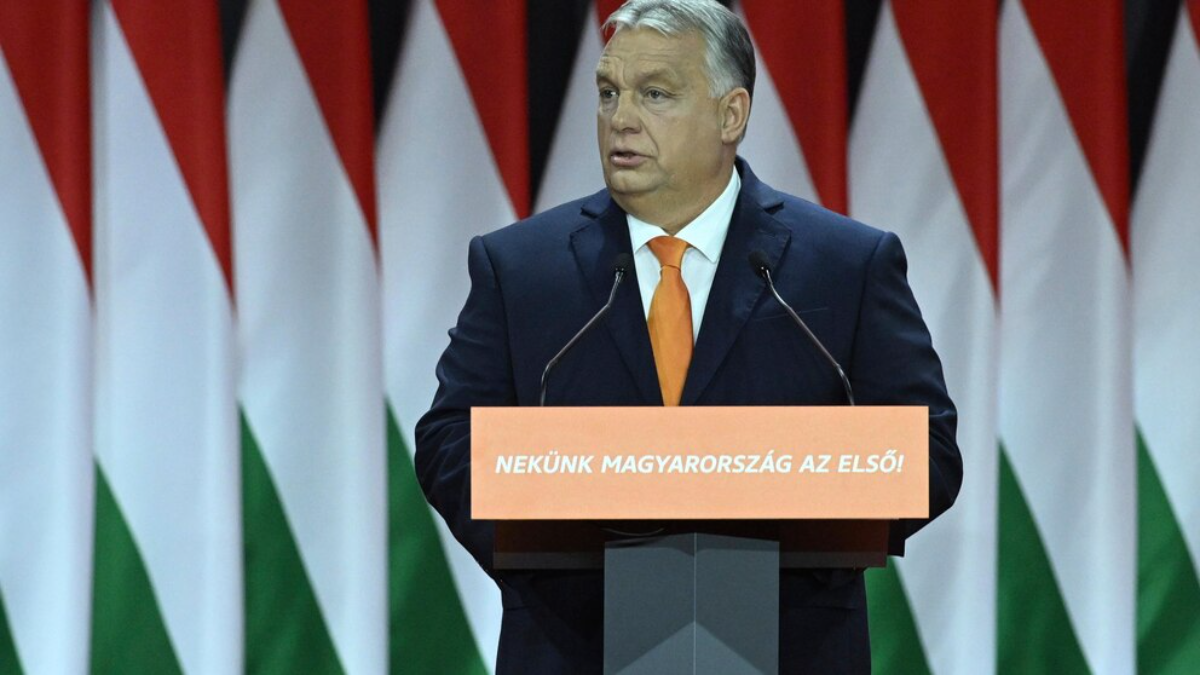Ukraine
Ukraine will either be Permanently Neutral or Permanently Divided

Yes, yes, and yes. Yes to Hall Gardner’s analysis of the necessity for a neutral solution to Ukraine. Yes to that of Klaus Larres, and yes to that of the many others, including Henry Kissinger, Steve Walt, Anatol Lieven, Katrina vanden Heuvel, and the many European colleagues like Heinz Gärtner and others in the neutrality studies network who have been calling for a neutral status for Ukraine for years.
And no, it is not cynicism to call again for a neutral solution to what has morphed from a crisis into a war. This war could have been avoided had leaders in the West and in Kyiv not misinterpreted Russia’s demands for security guarantees, a common security architecture, and the stop of NATO expansion as hubris. It doesn’t matter whether NATO is “really” a threat to Russia or not, the only thing that matters is what Russian leaders believe it is. And we are seeing now that they are willing to even go to war to make it absolutely impossible for Ukraine to ever dream of NATO membership again.
Don’t get me wrong. Vladimir Putin is committing a crime. The invasion of Ukraine is a blatant infringement of international law, the norms of the Post-WWII international order, it is (probably) unprovoked, and simply unjustifiable. I would never justify a war of aggression, which this is. The annexation of Crimea was also a crime, as it broke the Budapest Memorandum. What I’m writing here is not an excuse of Mr. Putin’s actions. It is simply an explanation why Russia goes to war with a sister nation. Russia attacking Ukraine makes as much sense as Sweden attacking Norway, or the US attacking Canada. It is a tragedy and would only happen if something was seriously out of whack.
Offering Ukraine and Georgia NATO membership back in 2008 was a tremendous mistake. It hardened the political fronts inside the countries, leading Georgia to believe that NATO would help bringing back its breakaway regions, creating the ground for the 2008 Russo-Georgian war. We are seeing the replay of that on a much grander scale now in Ukraine. The West’s rhetorical support for the Maidan uprising was another mistake. It immediately led to the annexation of Crimea, the most strategic place in the Black Sea, with a Russian naval base which it simply could not risk ever becoming a NATO outpost.
The West failing for 7 years to pressure Ukraine to implement the Minsk II agreements and start a federalization process was the third mistake. Putin did not recognize the two Ukrainian breakaway regions until a few weeks ago because Minsk II would have been a way forward for Russia to receive what it wanted without a war and international backlash. But this chance again was squandered. Western leaders only started remembering Minsk II in February this year, when Russia threw it in the garbage bin after demanding so many years it be implemented.
Russia behaves utterly rationally, like a criminal, but like a rational criminal. And let me be clear, Russia is not even doing something new here. The West has been behaving criminally for years. It has given Moscow all it needs to do what it is doing now. Fabricated pretext to illegally invade a country with false claims—like “Weapons of Mass Destruction”—check. Change of territorial status without consent from the internationally recognized sovereign nation it is part of—like Kosovo—check. Military action without UN mandate—like the Iraq War—check. Unilateral recognition of border changes that came about through war—like US recognition of the Golan Heights—check. Russia is ruthless in using the West’s playbook for its own purposes. It’s just less skilled at controlling the narrative and gathering international support.
Even the pretext of intervening for “humanitarian purposes” is there. The very argument with which NATO implemented a UN-mandated No-fly zone over Libya but then went on to bombard strategic military positions leading to the downfall of the Gadhafi regime. It will take years to sort out in this instance who fired the first shots, how many Donbas citizens were killed by Ukrainian forces, how many by Russian forces, who did the shelling, and if there is anything true about Russian claims of mass atrocities in the Donbas. The tragedy is that this is another nail in the coffin of the OSCE standards and the norms that we hoped would secure peace on the Eurasian continent.
Ukrainian neutrality with a federal structure would have been a solution that could have defused the whole situation many years ago. Even just months ago. Putin’s draft treaties of December 17 last year were basically a demand for Ukrainian neutrality. The treaties just did not name the policy, probably to avoid giving the west a pre-text to refuse the neutralization of Ukraine. Well, now Russia attacked, and it is putting its cards on the table. Putin suggested Ukraine return to the neutrality article it had in its constitution before 2014. He said so again in a televised speech and there were also reports about his offer to discuss with the Ukrainian leadership a neutralization and demilitarization. At some point, we even heard from Ukraine that it might be prepared to accept a neutralized status.
Unfortunately, the talks have not yielded a ceasefire yet, but it is clear that the neutrality of Ukraine remains a key-element in Russia’s negotiation strategy. Sergei Naryshkin, Moscow’s spy-chief, just said so again on Thursday, March 3, and Mr. Putin did so on March 5. He also reiterated that he perceives the potential of a Ukraine in NATO as a deadly threat to Crimea, and in extension, to Russia. It is nonsense that Russia is trying to rebuild the Soviet Union. That is just western scaremongering. Nothing in the Russian negotiation tactic or its speech acts would give any evidence of that. Just think for a moment: no soviet leader ever accepted the neutralist tendencies in their sphere of influence. Just ask the Hungarians what happened to them when they tried to become neutral in 1956. Russia is playing a completely different game. It simply wants a non-hostile buffer zone around its heartland.
Neutrality works. We know Russia wants it, and we know it accepts it. Just look east. Mongolia declared its neutrality in 2015. Russia and China both accepted that. Why? Because it makes sense. Neutrals are buffer states that put physical space between real adversaries and thereby deescalate the security dilemma. We are all students of international relations and know the security dilemma. Propping up one party with weapons for “defense” will of course lead to insecurities in the other party and to their propping up their fire power in turn. Neutral states that are armed but no serious threat are perfect buffers and that’s exactly what Putin seems to want. Buffers between Russia’s heartland and NATO.
Russia also accepts the neutrality of Moldova and accepts that of Turkmenistan. Putin wants a neutral Ukraine, and that would make sense for all parties involved. And by now, there is also no more alternative. It’s either going to be permanent neutrality or permanent division or, in the worst case, even permanent occupation for Ukraine. A federal, demilitarized, and neutral Ukraine is the only way forward into peace with some chances for Ukraine to receive the Donbas back if a Belgium-style federalization with the individual regions receiving strong powers also over foreign policy matters was on the table.
And I will close with this: permanent neutrality is not even a bad solution. It’s a very European solution for a very European problem; constant geopolitical mutual threats. Switzerland was neutralized in 1815 to keep Austria and France apart, Belgium and Luxemburg put space between France and Germany, and Austria, in 1955, was neutralized to regain its independence without becoming a threat in NATO to the USSR. And it worked. It can work again for Ukraine because it is so obviously exactly the compromise that Russia wants if just the West and Ukraine can accept it, too. If Ukraine declares its permanent neutrality and its security partners sign off on that, peace will return.
Via MD
News
Russian Troops Advance: Ukraine’s Eastern Cities Brace for Impact

As Russian troops continue to advance towards Ukraine’s eastern cities, frontline communities are bracing themselves for the worst. With Moscow’s forces slowly pressing forward, life is draining out of these cities, leaving residents anxious and uncertain about what the future holds.

The situation in Ukraine’s eastern cities has been tense for years, with sporadic fighting between Ukrainian government forces and Russian-backed separatists. However, the recent escalation of violence has raised concerns that the conflict could spiral out of control, leading to a full-scale war between Ukraine and Russia.
Despite calls for a peaceful resolution to the conflict, tensions remain high as Russian troops continue to move towards Ukraine’s border. As the situation continues to unfold, residents of Ukraine’s eastern cities are left to wonder what the future holds for them and their families.
Table of Contents
Russian Military Advances

Moscow’s Strategy
The Russian military has been slowly advancing towards eastern cities in Ukraine, with Moscow’s forces pressing forward with a clear strategy in mind. The Russian government has claimed that they are only protecting Russian-speaking citizens in the region, but many experts believe that the ultimate goal is to annex the territory and expand Russian influence in the region.
One of the key tactics used by Moscow is the deployment of so-called “little green men” – Russian soldiers without insignia – to stir up unrest and create chaos in the region. This has been seen in previous annexations by Russia, including the annexation of Crimea in 2014.
Frontline Dynamics
As Russian troops advance, life is draining out of frontline communities in Ukraine. The situation is particularly dire in cities such as Donetsk and Luhansk, which have been at the center of the conflict since 2014. The ongoing violence has caused significant damage to infrastructure and has forced many residents to flee their homes.
The Ukrainian military has been fighting back against the Russian advance, but they are facing significant challenges. The Russian military is well-equipped and well-trained, and they have a clear advantage in terms of firepower. As a result, the Ukrainian military has been forced to resort to guerrilla tactics, including hit-and-run attacks on Russian convoys.
The situation in eastern Ukraine remains tense, with both sides continuing to engage in sporadic fighting. The international community has condemned Russia’s actions and has called for a peaceful resolution to the conflict, but it remains to be seen whether this will be possible.
Impact on Eastern Ukrainian Cities

As Russian troops continue to advance, the eastern cities of Ukraine are bracing for the worst. The slow but steady progress of Moscow’s forces is taking a heavy toll on the communities closest to the frontlines.
Civilian Challenges
The impact on civilians in these cities is significant. Many are living in fear of the violence that could erupt at any moment, with some already forced to flee their homes in search of safety. The ongoing conflict has disrupted essential services such as healthcare, education, and transportation, leaving residents struggling to meet their basic needs.
The threat of violence has also taken a toll on the mental health of those living in these communities. The constant fear and uncertainty have led to increased levels of stress and anxiety, making it difficult for people to go about their daily lives.
Economic Consequences
The economic consequences of the conflict are also severe. The ongoing violence has disrupted trade and commerce, leading to a sharp decline in economic activity. Many businesses have been forced to close, leaving thousands of people without work.
The disruption of essential services has also had a significant impact on the local economy. Healthcare facilities, schools, and transportation networks have all been severely affected, making it difficult for businesses to operate and for people to access the services they need.
Overall, the situation in eastern Ukraine is dire. With Russian troops continuing to advance, the future of these communities remains uncertain. The international community must act quickly to provide assistance and support to those affected by the conflict, and to work towards a peaceful resolution to the ongoing crisis.
International Responses

Diplomatic Efforts
The international community has expressed concern over the escalating conflict between Ukraine and Russia. The United Nations Security Council held an emergency meeting to discuss the situation and called for an immediate de-escalation of tensions. The European Union has also urged Russia to withdraw its troops and engage in dialogue with Ukraine.
In addition, several countries, including the United States, Canada, and the United Kingdom, have pledged their support to Ukraine. The US has promised to provide military aid to Ukraine, while Canada has announced sanctions against Russia.
Sanctions and Aid
The European Union has imposed economic sanctions on Russia in response to its actions in Ukraine. The sanctions target key sectors of the Russian economy, including energy, finance, and arms exports.
The EU has also provided financial aid to Ukraine to support its economy and help it deal with the humanitarian crisis caused by the conflict. The United States has also provided financial aid to Ukraine, as well as military assistance.
Overall, the international community is working to find a diplomatic solution to the conflict and support Ukraine in its efforts to defend its sovereignty and territorial integrity.
Future Projections

As the Russian troops continue to advance towards Ukraine’s eastern cities, the future looks uncertain for the frontline communities. The ongoing conflict has already caused significant damage to the region’s infrastructure, and the situation is likely to worsen as the fighting intensifies.
One of the major concerns is the impact on the local economy. The region’s industries, including mining and agriculture, have already been hit hard by the conflict, and the continued presence of Russian troops is likely to further disrupt trade and investment. This could lead to rising unemployment and a decline in living standards for those living in the affected areas.
There are also concerns about the humanitarian situation in the region. As the conflict intensifies, more and more people are being displaced from their homes, and many are struggling to access basic necessities such as food, water, and medical care. The ongoing violence is also taking a toll on the mental health of those living in the affected areas, with many experiencing trauma and anxiety.
In the coming months and years, it is likely that the situation in Ukraine’s eastern cities will remain volatile and unpredictable. The international community must work together to find a peaceful resolution to the conflict and provide support to those affected by the ongoing violence. Only through cooperation and dialogue can we hope to bring an end to this devastating conflict.
NATO
Unpacking NATO’s Troop Deployments in Ukraine: Navigating the Path to Peace Amidst Nuclear Risks

Introduction
In recent times, the geopolitical landscape has been fraught with tensions, particularly surrounding NATO’s plans for troop deployments in Ukraine. The implications of such actions have sparked concerns about the potential for nuclear war. This article delves into the intricacies of NATO’s troop deployments in Ukraine and analyzes the risks associated with these manoeuvres.

Understanding NATO’s Troop Deployments in Ukraine:
NATO’s decision to deploy troops in Ukraine stems from a desire to bolster security in the region amidst escalating tensions with Russia. The alliance aims to support Ukraine’s sovereignty and deter further Russian aggression. However, these deployments have raised alarm bells due to the proximity to Russia’s borders and the potential for miscalculations that could lead to a dangerous escalation.
Assessing the Nuclear Threat:
The spectre of nuclear war looms large over any conflict involving major powers like NATO and Russia. The presence of troops in Ukraine increases the risk of inadvertent clashes that could spiral out of control, potentially leading to a catastrophic nuclear exchange. Understanding the dynamics of nuclear deterrence and the challenges it poses in a volatile situation is crucial in assessing the gravity of the situation.

Historical Context and Lessons Learned:
Drawing lessons from past conflicts and crises can provide valuable insights into how to navigate the current situation. Historical examples such as the Cuban Missile Crisis highlight the dangers of brinkmanship and the importance of clear communication channels to prevent misunderstandings that could trigger a nuclear catastrophe.
Diplomatic Efforts and De-escalation Strategies:
Amidst heightened tensions, diplomatic efforts play a crucial role in preventing conflicts from escalating into full-blown wars. Engaging in dialogue, promoting transparency, and seeking common ground are essential components of de-escalation strategies that can help defuse tensions and reduce the risk of nuclear confrontation.
The Role of International Organizations and Multilateral Cooperation:
International organizations like the United Nations play a pivotal role in mediating conflicts and promoting peaceful resolutions. Multilateral cooperation is essential in addressing complex security challenges and fostering stability in regions facing geopolitical tensions. Leveraging diplomatic channels through international platforms can help mitigate risks and prevent conflicts from spiralling out of control.
Conclusion:
As NATO’s troop deployments in Ukraine continue to provoke concerns about the specter of nuclear war, it is imperative for all parties involved to exercise restraint, prioritize dialogue over confrontation, and work towards peaceful resolutions. By understanding the risks involved, learning from history, and engaging in diplomatic efforts, we can navigate these turbulent times with caution and foresight.
European Union
A Pyrrhic Victory for Ukraine: Hungary’s Veto Casts a Shadow Over EU Membership Dream

In a night of stark contrasts, the European Union offered Ukraine a glimmer of hope by opening the door to membership, only to have Hungary slam it shut on crucial financial aid. While President Zelensky hailed the accession talks as a “victory,” the bitter sting of Hungary’s veto on a €50 billion aid package left a bitter aftertaste. This geopolitical chess game, unfolding amidst the backdrop of a brutal war, raises critical questions about solidarity, unity, and the true meaning of European values.
Hungary’s decision, orchestrated by Prime Minister Viktor Orbán, stands as a stark reminder that the path to EU membership is fraught with political hurdles. Orbán, a long-time critic of Ukraine’s President Zelensky and a close ally of Russian President Putin cited concerns about Ukraine’s readiness and the potential burden on Hungary as reasons for his veto. However, many see this move as politically motivated, a calculated leveraging of EU funds frozen over rule-of-law concerns.
This cynical ploy throws a wrench into the narrative of unwavering European support for Ukraine. The war-torn nation, battling for its very existence against Russian aggression, desperately needs this financial lifeline. The €50 billion package, earmarked for reconstruction, humanitarian aid, and military assistance, is not a luxury, but a lifeline. Every euro withheld is a victory for Putin, prolonging the suffering of the Ukrainian people.
Hungary’s isolation in this decision is palpable. All 26 other member states backed the aid package, highlighting the widening chasm between Orbán’s nationalist populism and the EU’s values of unity and solidarity. The European Council President, Charles Michel, called Orbán’s veto “unjustifiable,” and the chorus of condemnation from other member states is growing.
Beyond the immediate financial impact, Hungary’s veto casts a shadow over the future of EU enlargement. The prospect of Ukraine’s accession, once seen as a symbol of European unity against Russian aggression, is now tainted by political manoeuvring and self-interest. This raises concerns about the EU’s credibility as a beacon of hope and a guarantor of security for aspiring members.
However, amidst the disappointment, there are glimmers of hope. The opening of accession talks for Ukraine is a significant step forward, a tangible recognition of the country’s democratic aspirations and its unwavering commitment to European values. It is a clear message to Putin that Ukraine has a future within the European fold, a future that cannot be extinguished by bombs or vetoes.
Moving forward, the EU must find a way to overcome this internal friction. Hungary’s veto cannot be allowed to derail the Ukrainian people’s legitimate pursuit of membership. Potential solutions could include amending the voting procedure for future aid packages, exploring alternative funding mechanisms, or even imposing sanctions on Hungary for obstructionism.
Ultimately, the responsibility lies with Orbán. He must choose whether to stand on the side of history, supporting Ukraine in its fight for freedom and democracy, or remain tethered to his own narrow political agenda. The eyes of Europe, and indeed the world, are watching.
The story of Hungary’s veto is not just about euros and political gamesmanship. It is a story about the values that define Europe – solidarity, unity, and the courage to stand up for what is right in the face of adversity. While the sting of the veto is immediate, the long-term consequences depend on how the EU and its member states respond. Will they allow Orbán’s cynicism to dim the light of European hope for Ukraine? Or will they rise to the challenge, reaffirming the values that bind them together and forging a path towards a future where all of Europe stands united against tyranny and oppression?
This is not just a question for politicians and diplomats; it is a question for every European citizen. We must demand that our leaders stand on the right side of history, that they reject the cynicism and self-interest that fueled Hungary’s veto, and that they work tirelessly to ensure that Ukraine’s dream of European membership does not become another casualty of this tragic war.
The fight for Ukraine’s future is far from over. The opening of accession talks is a victory, but the battle for financial aid, for unity, and the very soul of Europe continues. We must stand with Ukraine, not just in words, but in deeds, ensuring that the light of hope kindled by the EU’s embrace does not flicker out, but burns brightly, guiding Ukraine towards a future it so rightfully deserves.
-

 Featured3 years ago
Featured3 years agoThe Right-Wing Politics in United States & The Capitol Hill Mayhem
-

 Elections 20241 month ago
Elections 20241 month agoAnalyzing Trump’s Super Tuesday Triumph and Nikki Haley’s Strategic Moves
-

 News2 years ago
News2 years agoPrioritizing health & education most effective way to improve socio-economic status: President
-

 China3 years ago
China3 years agoCoronavirus Pandemic and Global Response
-

 Canada3 years ago
Canada3 years agoSocio-Economic Implications of Canadian Border Closure With U.S
-

 Conflict3 years ago
Conflict3 years agoKashmir Lockdown, UNGA & Thereafter
-

 Democracy3 years ago
Democracy3 years agoMissing You! SPSC
-

 Democracy3 years ago
Democracy3 years agoPresident Dr Arif Alvi Confers Civil Awards on Independence Day
























